第19章 BOOK V(1)
OF THEIR TRAFFIC
BUT it is now time to explain to you the mutual intercourse of this people, their commerce, and the rules by which all things are distributed among them.
As their cities are composed of families, so their families are made up of those that are nearly related to one another. Their women, when they grow up, are married out; but all the males, both children and grandchildren, live still in the same house, in great obedience to their common parent, unless age has weakened his understanding: and in that case, he that is next to him in age comes in his room. But lest any city should become either too great, or by any accident be dispeopled, provision is made that none of their cities may contain above 6,000 families, besides those of the country round it. No family may have less than ten and more than sixteen persons in it; but there can be no determined number for the children under age. This rule is easily observed, by removing some of the children of a more fruitful couple to any other family that does not abound so much in them.
By the same rule, they supply cities that do not increase so fast, from others that breed faster; and if there is any increase over the whole island, then they draw out a number of their citizens out of the several towns, and send them over to the neighboring continent; where, if they find that the inhabitants have more soil than they can well cultivate, they fix a colony, taking the inhabitants into their society, if they are willing to live with them; and where they do that of their own accord, they quickly enter into their method of life, and conform to their rules, and this proves a happiness to both nations; for according to their constitution, such care is taken of the soil that it becomes fruitful enough for both, though it might be otherwise too narrow and barren for any one of them. But if the natives refuse to conform themselves to their laws, they drive them out of those bounds which they mark out for themselves, and use force if they resist. For they account it a very just cause of war, for a nation to hinder others from possessing a part of that soil of which they make no use, but which is suffered to lie idle and uncultivated; since every man has by the law of nature a right to such a waste portion of the earth as is necessary for his subsistence. If an accident has so lessened the number of the inhabitants of any of their towns that it cannot be made up from the other towns of the island, without diminishing them too much, which is said to have fallen out but twice since they were first a people, when great numbers were carried off by the plague, the loss is then supplied by recalling as many as are wanted from their colonies; for they will abandon these, rather than suffer the towns in the island to sink too low.
But to return to their manner of living in society, the oldest man of every family, as has been already said, is its governor. Wives serve their husbands, and children their parents, and always the younger serves the elder. Every city is divided into four equal parts, and in the middle of each there is a marketplace: what is brought thither, and manufactured by the several families, is carried from thence to houses appointed for that purpose, in which all things of a sort are laid by themselves; and thither every father goes and takes whatsoever he or his family stand in need of, without either paying for it or leaving anything in exchange.
There is no reason for giving a denial to any person, since there is such plenty of everything among them; and there is no danger of a man's asking for more than he needs; they have no inducements to do this, since they are sure that they shall always be supplied.
It is the fear of want that makes any of the whole race of animals either greedy or ravenous; but besides fear, there is in man a pride that makes him fancy it a particular glory to excel others in pomp and excess. But by the laws of the Utopians, there is no room for this. Near these markets there are others for all sorts of provisions, where there are not only herbs, fruits, and bread, but also fish, fowl, and cattle.